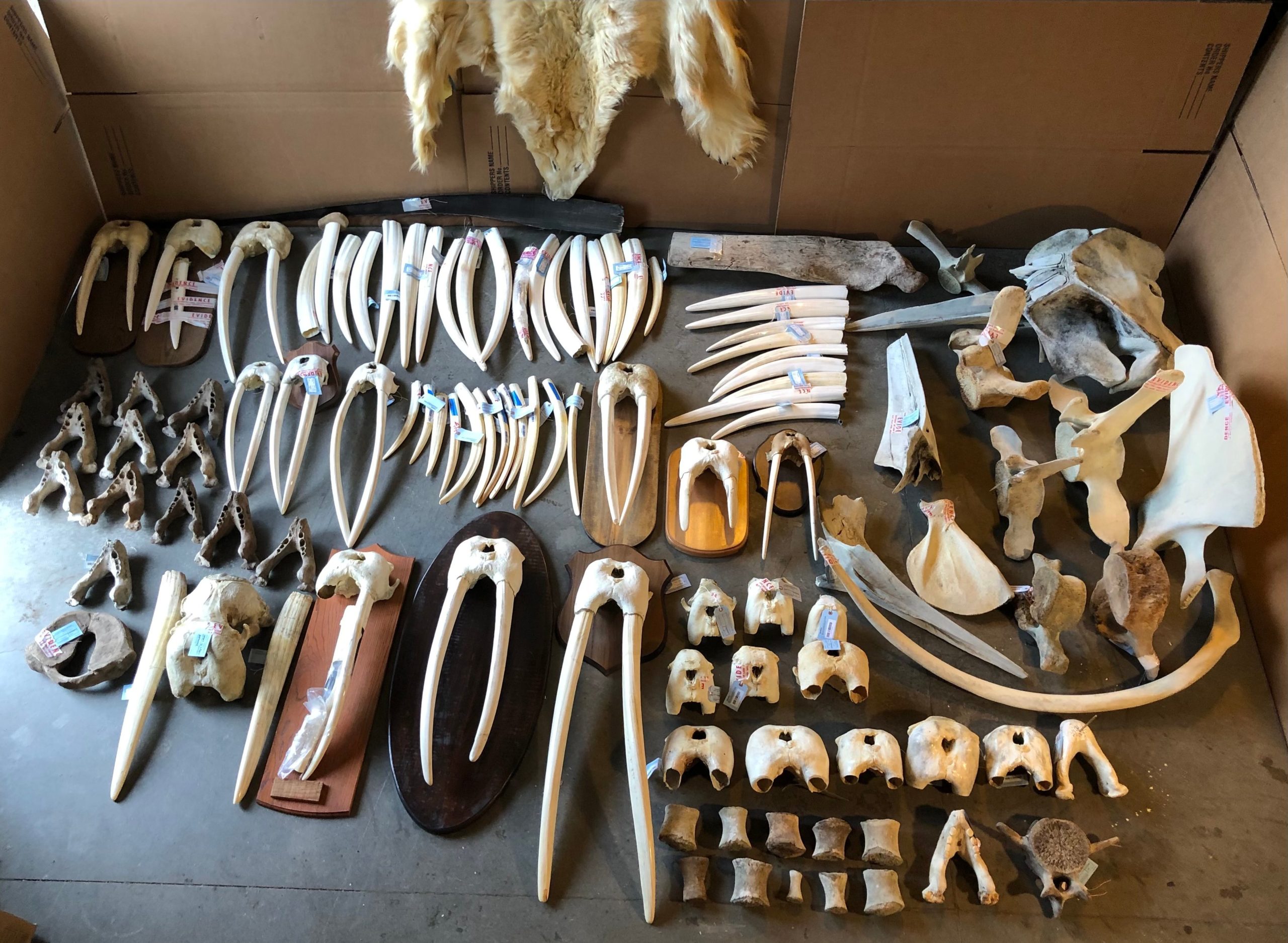Alaska store owner sentenced for illegally trafficking walrus ivory
Walter Earl was sentence to six months of home confinement and more than $400,000 in fines and restitution.

The owner of an Alaska art shop was sentenced on Wednesday to six months of home confinement and ordered to pay more than $400,000 in fines and restitution for illegal trafficking in walrus ivory and income tax violations.
Walter Earl, 76, the owner of The Antique Gallery in Anchorage, trafficked illegally in walrus ivory for several years, the U.S. Attorney’s Office said in a statement.
Earl in April of 2020 agreed to plead guilty to three counts of violating the Lacey Act, the law that forbids importation or sales of illegally obtained wildlife, and one count of tax evasion. The Lacey Act counts were for purchases and sales of walrus head mounts, which are the skull and attached tusks of walruses.
In his plea agreement filed in April of 2020, Earl also admitted to purchasing more than 50 walrus tusks that he intended to sell illegally.
Under the Marine Mammal Protection Act, only Alaska Natives are permitted to hunt walruses and other Arctic marine mammals, and only for noncommercial subsistence purposes. According to the law, raw ivory may not be sold to non-Natives; the ivory must be crafted into a piece of artwork to be lawfully sold.
[How a walrus ‘resource curse’ might partly explain the Norse disappearance from Greenland]
“The U.S. Fish and Wildlife Service is committed to protecting our unique and highly vulnerable marine mammal species from illegal exploitation and commercialization,” Rory Stark, special agent in charge for the U.S. Fish and Wildlife Service Office of Law Enforcement in Alaska, said in the U.S. Attorney’s Office statement. “Activities such as these not only impact the viability of walrus populations, but also subsistence and traditional handicraft creation relied on by Alaska Native people. We are dedicated to combatting all forms of illegal wildlife trafficking, especially those involving our domestic species of conservation concern.”
U.S. District Court Judge Sharon Gleason ordered Earl to pay $185,000 in fines and $216,054 in restitution to the Internal Revenue Service and to forfeit to the government 50 walrus tusks and other illegally obtained marine mammal parts.
A sentencing memorandum filed on Aug. 4 by his defense attorneys said Earl has shown remorse for crimes that “were serious and deserve punishment” but that he should not go to jail because of his age, his medical conditions and the risks posed by the COVID-19 pandemic.
“Mr. Earl has also shown extraordinary acceptance of responsibility: this has been a ‘plea-track’ case from the start, Mr. Earl has already paid full restitution, and will swiftly pay the fines jointly recommended by the parties and the Probation Office. He will also comply with all provisions of the Marine Mammal Protection Act and discontinue the sale of illegal ivory.”